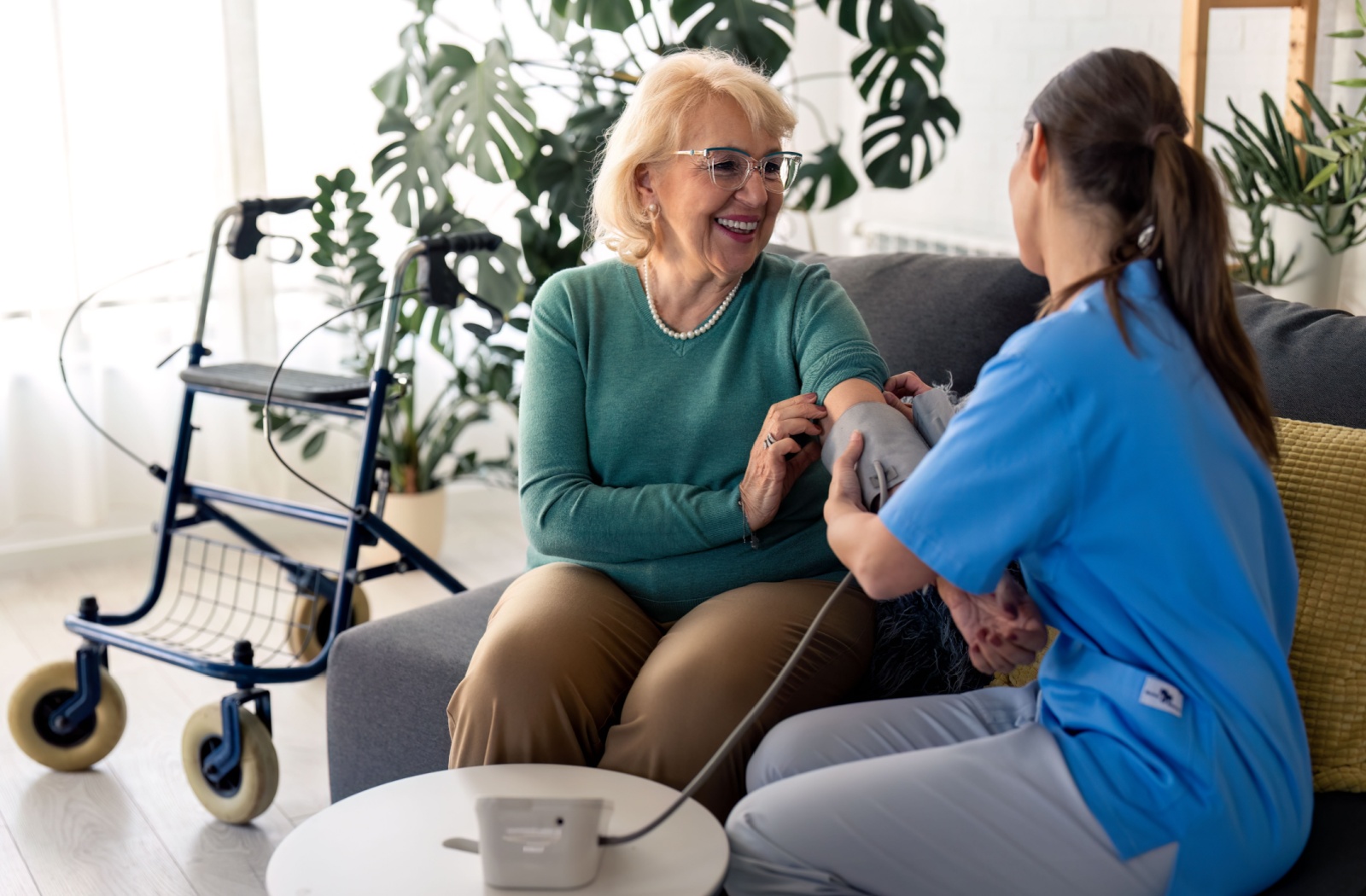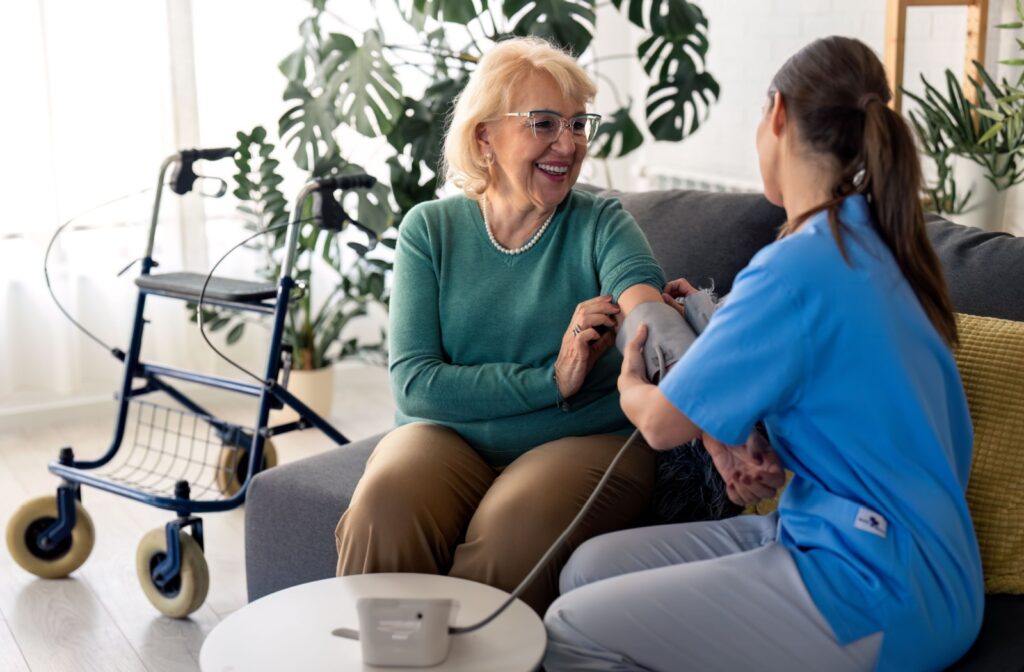Leaving the hospital is a big step—but it’s not the last one. For many older adults, going straight home after a hospital stay isn’t always the right fit. That’s where skilled nursing care can help. This lifestyle offers a place to recover with both comfort and support.
Transitioning to skilled nursing from a hospital takes time. However, it’s an incredible way to make sure your loved one keeps getting the care they need. Skilled nursing is a way to continue recovery from a hospital stay in a place that feels just like home.
The Basics of Skilled Nursing
Skilled nursing offers more than just a place to rest. It provides a safe and supportive space for older adults with ongoing medical needs. Whether recovering from surgery, managing a chronic illness, or regaining strength after a health setback, this level of care focuses on both healing and quality of life.
Skilled nursing isn’t like other types of senior living. In skilled nursing, the on-site teams are made up of licensed nurses, therapists, and medical aides. They’re trained to provide personalized support with activities like occupational therapy, medication monitoring, wound care, and more. This is essential for helping your loved one properly heal.
Most importantly, skilled nursing blends clinical oversight with a home-like environment. For older adults, this setting allows them to recover without the stress and sterility of a hospital room. It’s structured, but also nurturing.
The Benefits of Choosing Skilled Nursing After a Hospital Stay
Making the move to skilled nursing after hospitalization makes a big difference. It creates structure and support in a time that often feels overwhelming.
Families tend to choose skilled nursing after a hospital stay because it offers:
- A recovery-focused environment with built-in medical care and therapy.
- Regular monitoring for conditions that need attention beyond the hospital stay.
- Support for family caregivers who can’t provide medical oversight at home.
- Access to rehab services that can help improve strength, mobility, and independence.
These are invaluable when recovering after a hospital stay.
Steps to Prepare for the Move to Skilled Nursing
The decision to move into skilled nursing often comes quickly. However, a little preparation can go a long way. Planning ahead helps ease the hospital transition and makes the process feel more manageable for both the patient and family.
Talk with Hospital Care Teams Early
Open communication with discharge planners, nurses, and hospital social workers can help clarify what comes next. Ask specific questions about the type of recovery support your loved one will need and how long they might stay in a nursing community.
This is also the right time to ask about insurance coverage and what paperwork may be needed. The more you know early on, the smoother the transition tends to be.
Look into Local Skilled Nursing Options
Every community is different. If possible, visit potential communities or research them online. Look for communities with a strong care team, clean living spaces, and services that match your loved one’s recovery goals.
During your visit, pay attention to how staff interact with residents. Are they attentive, calm, and kind? That’s a good sign of consistent support.
Get Documents & Personal Items Ready
Once a decision is made, gather key documents and pack a few comforting items to ease the move. This creates a more familiar environment for your loved one.
It helps to pack:
- Medical records, including the hospital discharge summary
- A complete list of medications and health conditions
- Insurance details and identification
- Comfortable clothing and pajamas
- Toiletries and familiar personal items
- Books, puzzles, or small hobbies to help pass the time
Small touches from home can help your loved one settle in with more ease and less anxiety.

What the First Days Look Like in Skilled Nursing
The first few days in skilled nursing are focused on assessment and orientation. After admission, the care team will evaluate your loved one’s mobility, medical needs, emotional wellness, and recovery goals. This helps shape a customized care plan that evolves as progress is made.
Therapy sessions—such as physical or occupational—often begin right away. This might feel tiring at first, but early movement and structure are important parts of healing.
Emotionally, it’s normal for your loved one to feel unsettled during the first week. Routine, family visits, and familiar items can make a big difference. Open conversations with the care team can also offer peace of mind and a clearer picture of what’s happening each day.
Supporting Your Loved One’s Mental & Emotional Health
Supporting your loved one emotionally can be just as impactful as helping them physically. Simple steps can create a sense of routine, comfort, and belonging.
To support a loved one’s mental and emotional health, try to:
- Visit regularly—even short visits can provide connection and stability
- Bring personal items like favorite blankets, photos, or music
- Encourage involvement in group activities or therapy sessions
- Celebrate small milestones with encouragement and kindness
- Stay positive without ignoring the challenges they may feel
These small efforts go a long way in helping your loved one feel supported, seen, and empowered to heal.
Helping Your Loved One Thrive
Moving from the hospital to a skilled nursing community is more than a change in location. It’s a fresh step toward stability and healing. With the right information, thoughtful planning, and a touch of compassion, this transition can feel a lot less overwhelming.
There’s more good news, too. Your family isn’t alone, and our team at Birchwood Arbors is here to help. We’re ready to help your loved one in their recovery, so reach out to us today! Book a tour to come see what a difference we can make.



